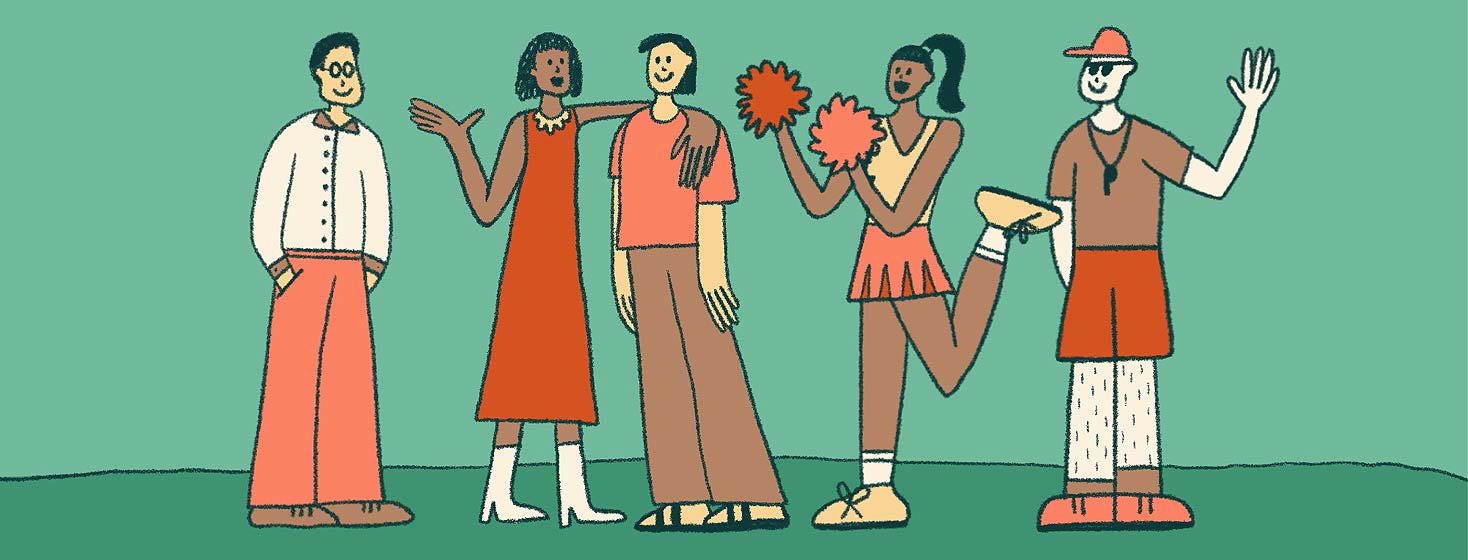Supporting Others With Epilepsy as a Peer Mentor
In a recent article, I spoke mainly about the benefits of support groups, and I touched on how I'm now my state's Peer Mentor Ambassador.
While the official peer mentor programs are still being organised nationwide and even so are starting up, I'm now often the middle ground contact between Epilepsy Queensland Inc. and their new clients who either aren't yet ready to participate in group activities, such as the support groups, or are interested in a more personal, one-on-one approach.
The power of peer support
This has been greatly beneficial to me as a peer mentor as it forces me to reflect on my history and think about my future so that I can portray a message of hope – but truthfulness – to my peers. It helps me give them advice on what I wouldn't recommend and what I would.
Having been part of the support group, as I still am, I've heard my fair share of both horror stories regarding epilepsy and golden stories about it, too. And whilst keeping the original person(s) anonymous out of respect, I get to share those with my peers who I mentor in a fashion of learning from others. Which is what peer mentoring is all about.
Sharing my own epilepsy experiences is rewarding
I find myself to be a good peer mentor in the sense that I can turn any experience into a lesson to be learnt and I have many experiences given that I've been epileptic for over half my life now. I'm also quite an open book, and I have yet to find an epilepsy-related experience that I'm not willing to turn into a lesson for both my peer and myself to learn from.
Being a peer mentor, not only do you teach others from your own experiences – both negatives and positives – but you also begin to learn from where you went wrong or right so you know what to do in the future for yourself. It's truly a life-altering experience that allows you to befriend others in your community, but also, learn how to befriend yourself again.
We can be hard on ourselves
A lot of us struggle with internalised ableism even if it's in such a small fraction that we don't initially notice it ourselves. Because of this, we carry around a backpack full of negative feelings and connotations, such shame or regret, for some quick examples.
What we carry with us depends mainly on our experiences with epilepsy in the formative period of learning what it is and how to cope mentally and physically with it.
The self-reflection required to be a peer mentor gives you a chance to look back on your personal history and inside yourself and that backpack you carry with you – and to work through it.
How to become an epilepsy peer mentor
If you think you have the strength to look inside of yourself and use that to help both yourself and others who need somebody to lead them away from negative experiences, please consider becoming a peer mentor. You can be online and help people across the world, although this comes with the niche of having to understand people in different countries and that they can have very different experiences to you.
You can also be a local face-to-face mentor if that's the path best-suited to you. You can do either by finding your closest epilepsy support organisation or by posting your offer on community service and notice boards so people can reach out to you independently.
It is a lot of work, though, and you must know when to step back and take a day for yourself and unload. You are carrying your own epilepsy journey on your back first and foremost, of course.

Join the conversation